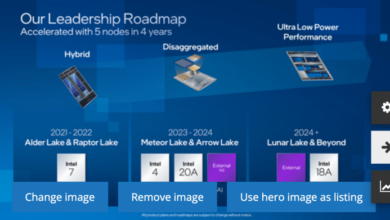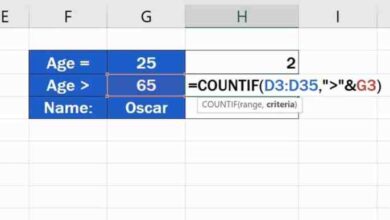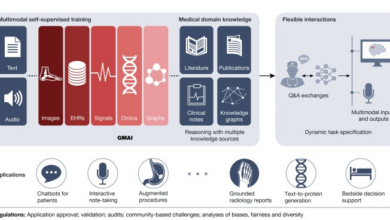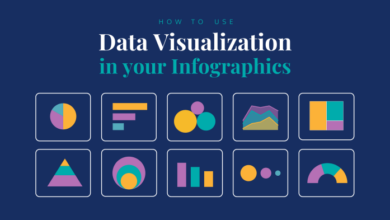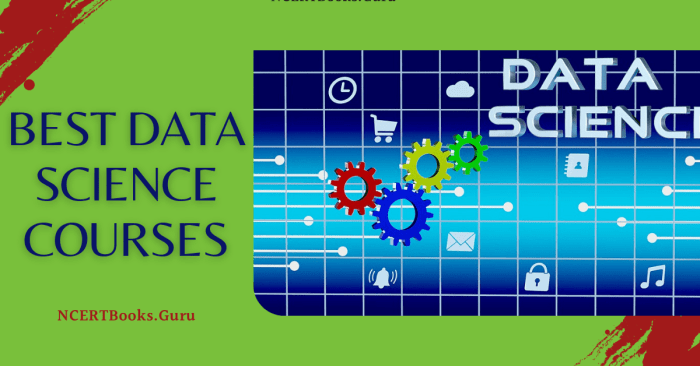
Best Data Science Courses: Your Path to a Rewarding Career
Best data science courses are the key to unlocking a world of opportunities in today’s data-driven world. Whether you’re a seasoned professional looking to switch careers or a curious beginner eager to learn, the right data science course can equip you with the skills and knowledge to excel in this exciting field.
From understanding the fundamental concepts of data science to mastering advanced machine learning techniques, these courses offer a comprehensive journey into the heart of data analysis and interpretation. We’ll explore different types of data science courses, essential skills, and top providers, helping you navigate this dynamic landscape and make informed decisions for your career.
Understanding Data Science
Data science is a multidisciplinary field that uses scientific methods, processes, algorithms, and systems to extract knowledge and insights from structured and unstructured data. It encompasses various techniques and tools for collecting, cleaning, analyzing, interpreting, and visualizing data to address complex challenges and make data-driven decisions.
Key Components of Data Science
Data science is a comprehensive field that involves several key components, each contributing to the overall process of extracting meaningful insights from data. These components are:
- Data Collection:This involves gathering raw data from various sources, including databases, APIs, social media, sensors, and more. The quality and completeness of collected data are crucial for the success of subsequent analysis steps.
- Data Cleaning and Preprocessing:Once data is collected, it often requires cleaning and preprocessing to handle inconsistencies, missing values, and irrelevant information. This step ensures data accuracy and consistency, improving the quality of analysis results.
- Data Exploration and Visualization:This involves exploring the data to identify patterns, trends, and relationships. Data visualization techniques are used to present insights in a clear and understandable manner, facilitating communication and decision-making.
- Data Modeling and Analysis:This involves applying statistical and machine learning techniques to build predictive models and extract insights from the data. Different models are used depending on the nature of the data and the specific problem being addressed.
- Data Interpretation and Communication:The final step involves interpreting the results of data analysis and communicating insights to stakeholders in a clear and concise manner. Effective communication is essential for translating data-driven insights into actionable decisions.
Role of Data Science in Industries
Data science plays a crucial role in various industries, enabling them to make data-driven decisions and improve their operations, products, and services. Some examples include:
- Healthcare:Data science is used to analyze patient data, develop personalized treatment plans, predict disease outbreaks, and improve healthcare outcomes.
- Finance:Financial institutions use data science for fraud detection, risk assessment, algorithmic trading, and customer segmentation.
- E-commerce:Data science powers recommendation engines, personalized marketing campaigns, inventory management, and customer behavior analysis in e-commerce businesses.
- Manufacturing:Data science is used to optimize production processes, predict equipment failures, improve quality control, and enhance supply chain management.
- Marketing:Data science enables marketers to understand customer preferences, target specific audiences, personalize marketing messages, and measure campaign effectiveness.
Core Skills for Data Science Professionals
To excel in the field of data science, professionals need a diverse set of skills, encompassing technical, analytical, and communication abilities. Some core skills include:
- Programming Languages:Proficiency in programming languages like Python, R, and SQL is essential for data manipulation, analysis, and model development.
- Statistics and Machine Learning:A strong understanding of statistical concepts and machine learning algorithms is crucial for building predictive models and extracting insights from data.
- Data Visualization:The ability to effectively communicate insights through data visualizations using tools like Tableau, Power BI, or matplotlib is essential for presenting results to stakeholders.
- Data Storytelling:The ability to translate data insights into clear and compelling narratives that resonate with audiences is a valuable skill for data science professionals.
- Problem-Solving and Critical Thinking:Data science involves identifying and solving complex problems, requiring strong analytical and critical thinking skills.
- Communication Skills:Effective communication is essential for collaborating with colleagues, presenting findings to stakeholders, and influencing decision-making.
Types of Data Science Courses: Best Data Science Courses
Navigating the world of data science can feel overwhelming, especially when considering the various types of courses available. From online platforms to traditional university programs, each option offers unique advantages and caters to different learning styles and career goals.
Understanding the nuances of these formats is crucial for choosing the best path for your data science journey.
Different Types of Data Science Courses
Data science courses come in a variety of formats, each with its own strengths and weaknesses. Here are some of the most common:
- Online Courses: These courses offer flexibility and accessibility, allowing you to learn at your own pace and from anywhere in the world. Popular platforms like Coursera, edX, and Udacity provide a wide range of data science courses, from introductory to advanced levels.
Many platforms also offer certifications that can enhance your resume.
- In-Person Courses: These courses offer a more traditional learning environment, with direct interaction with instructors and classmates. In-person courses can provide a more immersive learning experience, especially for hands-on activities and group projects. Universities, community colleges, and private institutions offer various data science programs.
Learning data science can open doors to exciting careers, and with the right courses, you can master the skills needed to analyze complex data sets and build powerful models. But beyond the technical skills, there’s also a human element to consider.
Imagine the potential for social interaction in the gaming world, as described in this article, apple vision pros spatial personas could bring couch co op gaming back for a whole new generation , where virtual reality allows for a more immersive and collaborative gaming experience.
Just like data science can help us understand patterns and trends, the future of gaming holds the potential for a new generation of connection and shared experiences.
- Bootcamps: Data science bootcamps are intensive, accelerated programs designed to equip students with practical skills in a short period. These programs typically focus on real-world applications and often lead to job placement assistance. While bootcamps are not suitable for everyone, they can be a good option for those seeking a quick path to a data science career.
- University Programs: For a comprehensive and in-depth understanding of data science, a university program can be the best choice. These programs offer a structured curriculum covering various data science topics, from theoretical foundations to advanced applications. University programs also provide opportunities for research and networking, which can be beneficial for career advancement.
Comparing Course Formats
The best course format for you will depend on your individual needs and preferences. Consider the following factors when making your decision:
| Course Format | Pros | Cons | Target Audience |
|---|---|---|---|
| Online Courses |
|
|
|
| In-Person Courses |
|
|
|
| Bootcamps |
|
|
|
| University Programs |
|
|
|
Essential Data Science Skills
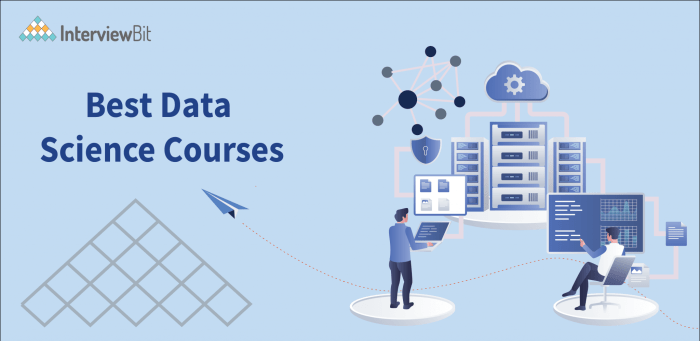
Data science is a rapidly growing field that combines various disciplines, including statistics, computer science, and domain expertise, to extract knowledge and insights from data. To excel in this field, professionals need a diverse set of skills that enable them to tackle complex challenges and deliver impactful solutions.
This section will explore the essential skills required for a successful data science career.
Programming Languages
Programming languages are the foundation of data science, providing the tools to manipulate, analyze, and visualize data. Proficiency in at least one programming language is crucial for data scientists.
- Python: Python is a popular choice for data science due to its simplicity, readability, and extensive libraries for data analysis, machine learning, and visualization. Libraries like NumPy, Pandas, Scikit-learn, and Matplotlib provide powerful tools for data manipulation, statistical analysis, model building, and data visualization.
- R: R is another widely used language in data science, particularly for statistical analysis and data visualization. It offers a rich ecosystem of packages for various statistical tasks, including linear regression, time series analysis, and hypothesis testing.
- SQL: SQL (Structured Query Language) is essential for interacting with relational databases. Data scientists often need to query and extract data from databases to perform their analysis.
Statistical Concepts, Best data science courses
Statistical concepts are fundamental to data science, providing the framework for understanding data patterns, drawing inferences, and making predictions.
- Descriptive Statistics: Descriptive statistics involves summarizing and describing data using measures like mean, median, mode, standard deviation, and variance. These measures provide insights into the central tendency, spread, and distribution of data.
- Inferential Statistics: Inferential statistics focuses on drawing conclusions about a population based on a sample of data. This involves using hypothesis testing, confidence intervals, and other techniques to make inferences about the population.
- Probability: Probability theory is essential for understanding random events and making predictions. It provides a framework for quantifying uncertainty and analyzing the likelihood of different outcomes.
Machine Learning Algorithms
Machine learning algorithms are the core of many data science applications, enabling computers to learn from data and make predictions.
- Supervised Learning: Supervised learning algorithms learn from labeled data, where each data point is associated with a known outcome. These algorithms are used for tasks like classification (predicting categorical outcomes) and regression (predicting continuous outcomes). Examples include linear regression, logistic regression, decision trees, support vector machines, and neural networks.
- Unsupervised Learning: Unsupervised learning algorithms learn from unlabeled data, identifying patterns and structures within the data. These algorithms are used for tasks like clustering (grouping similar data points), dimensionality reduction (reducing the number of variables), and anomaly detection. Examples include k-means clustering, principal component analysis (PCA), and association rule mining.
- Reinforcement Learning: Reinforcement learning algorithms learn by interacting with an environment, receiving rewards or penalties for their actions. These algorithms are used for tasks like game playing, robotics, and autonomous systems.
Data Visualization
Data visualization is essential for communicating insights from data to stakeholders. Effective data visualization techniques can help to reveal patterns, trends, and relationships in data, making it easier to understand and interpret.
- Charts and Graphs: Charts and graphs, such as bar charts, line charts, scatter plots, and histograms, are commonly used for visualizing data. These visualizations can effectively represent different types of data and relationships.
- Interactive Dashboards: Interactive dashboards allow users to explore data dynamically and gain insights through interactive filters, drill-down capabilities, and dynamic updates.
- Data Storytelling: Data storytelling involves using data visualizations and narratives to communicate insights in a compelling and engaging way.
Domain Expertise
While technical skills are essential, domain expertise is equally crucial for data science success.
Choosing the right data science course can be a daunting task, but with so many options available, there’s a perfect fit for every learner. While researching, I stumbled upon an interesting news article about the HomePod 3 leak revealing a major upgrade, possibly even a display.
This got me thinking about the potential of data science in smart home technology, and how these fields could intertwine in the future. Back to data science courses, I’m excited to continue exploring and finding the best fit for my own learning journey.
- Understanding the Business Context: Data scientists need to understand the business context of their projects to ensure that their analysis is relevant and actionable.
- Industry Knowledge: Industry knowledge is essential for identifying relevant data sources, interpreting results, and developing solutions that address specific business challenges.
- Collaboration with Stakeholders: Data scientists need to effectively communicate their findings to stakeholders, including business leaders, domain experts, and other team members.
Communication and Collaboration
Effective communication and collaboration are essential for data scientists to share their insights and work effectively with others.
Finding the best data science courses can be overwhelming, especially with so many options available. But while I’m researching the best data science courses, I stumbled upon a post about Prime Day AirTag deals being a letdown and 3 Tile alternatives to consider.
It reminded me that sometimes, the best data science skills are those that help us navigate everyday life! Back to my data science courses, I’m excited to explore the world of machine learning and AI.
- Technical Communication: Data scientists need to be able to communicate their findings clearly and concisely to both technical and non-technical audiences.
- Presentation Skills: Data scientists often need to present their findings to stakeholders, so strong presentation skills are essential.
- Teamwork: Data science projects often involve collaboration with other data scientists, domain experts, and business stakeholders. Effective teamwork is crucial for success.
Choosing the Right Course
Navigating the vast landscape of data science courses can be overwhelming. With so many options available, choosing the right one that aligns with your individual goals and aspirations is crucial. This section delves into key factors to consider when selecting a data science course and provides a checklist to aid your decision-making process.
Factors to Consider When Choosing a Data Science Course
The selection of a data science course should be a strategic decision based on a thorough evaluation of various factors. Understanding your learning objectives, desired level of expertise, preferred course duration, and budget are essential considerations.
Learning Objectives
- Define Your Goals:Clearly articulate what you hope to achieve through the course. Are you seeking a comprehensive understanding of data science fundamentals, or do you have a specific area of interest, such as machine learning or data visualization?
- Specific Skills:Identify the specific skills you want to acquire. Do you need to master Python programming, learn statistical analysis techniques, or gain expertise in data wrangling and cleaning?
- Career Aspirations:Consider your career goals. Is your aim to become a data scientist, data analyst, or a data engineer? The course should equip you with the necessary skills for your desired career path.
Expertise
- Instructor Qualifications:Evaluate the instructor’s credentials and experience in the field. Look for instructors with industry experience and a strong academic background in data science.
- Course Content:Assess the course content and curriculum. Ensure it covers relevant topics and provides a solid foundation in data science principles and techniques.
- Industry Relevance:Consider the course’s alignment with industry standards and current trends. A course that incorporates real-world case studies and practical applications will be more valuable.
Course Duration
- Time Commitment:Evaluate the time commitment required for the course. Consider your current workload and schedule to determine if you can dedicate the necessary time.
- Flexibility:Explore the course’s flexibility in terms of learning pace and scheduling. Online courses often offer more flexibility than traditional classroom settings.
- Course Structure:Understand the course structure, including the number of modules, assignments, and assessments. A well-structured course will provide a clear path to learning.
Cost
- Budget:Determine your budget for the course. Consider the cost of tuition, materials, and any additional fees.
- Value for Money:Evaluate the course’s value for money. Consider the quality of instruction, course content, and potential career benefits.
- Financial Aid:Explore options for financial aid or scholarships, especially if cost is a concern.
Course Evaluation Checklist
To streamline your course selection process, utilize this checklist to evaluate potential courses:
- Learning Objectives:Does the course align with your learning goals and desired skills?
- Expertise:Are the instructors qualified and experienced in data science?
- Course Content:Is the curriculum comprehensive and relevant to your needs?
- Course Duration:Can you commit to the required time investment?
- Cost:Is the course within your budget and offers value for money?
- Reviews and Feedback:Read reviews and feedback from previous students to gain insights into the course’s quality and effectiveness.
Aligning Course Selection with Career Goals
The ultimate goal of pursuing a data science course is to advance your career. To ensure a successful outcome, consider these steps:
- Research Industry Trends:Stay informed about current trends in data science and the skills employers are seeking.
- Networking:Connect with professionals in the field to understand the industry’s expectations and identify relevant skills.
- Course Portfolio:Build a portfolio of projects and case studies that showcase your acquired skills and demonstrate your ability to apply data science concepts in real-world scenarios.
Top Data Science Course Providers
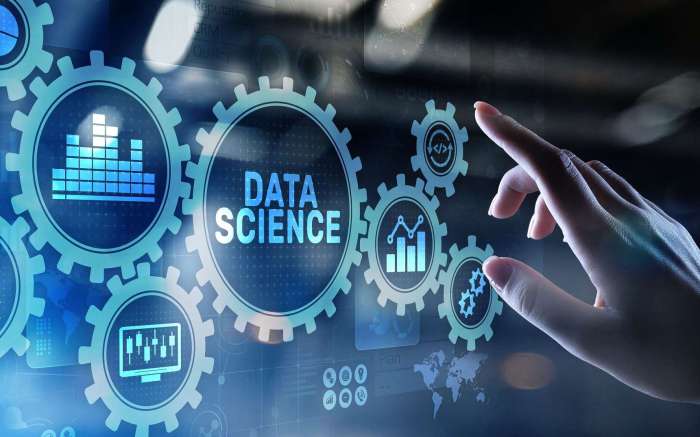
Choosing the right data science course provider is crucial for your learning journey. Several reputable platforms offer a wide range of courses, each with its unique strengths and weaknesses. This section will explore some of the most popular providers, helping you make an informed decision.
Popular Data Science Course Providers
Here are some of the top providers of data science courses:
- Coursera: Coursera is a leading online learning platform that partners with top universities and institutions worldwide. It offers a diverse selection of data science courses, including specializations, professional certificates, and individual courses.
- edX: Similar to Coursera, edX is another renowned platform offering high-quality courses from renowned universities. It boasts a comprehensive collection of data science courses, covering various topics from foundational concepts to advanced techniques.
- Udacity: Udacity specializes in providing career-focused nanodegree programs, including several data science tracks. These programs are designed to equip learners with in-demand skills for data science roles.
- DataCamp: DataCamp is specifically tailored for data science education, offering interactive courses and projects focused on practical skills. It covers various tools and technologies widely used in the industry.
Comparison of Data Science Course Providers
The following table summarizes the key features, strengths, and weaknesses of each provider:
| Provider | Course Offerings | Strengths | Weaknesses |
|---|---|---|---|
| Coursera | Diverse selection of courses, including specializations, professional certificates, and individual courses. Wide range of topics covered, from foundational concepts to advanced techniques. | Partnerships with top universities and institutions. Flexible learning options, including self-paced and instructor-led courses. Affordable pricing options, including financial aid. | Some courses may require prior knowledge or experience. Some courses may not be as practical as others. |
| edX | Comprehensive collection of data science courses, covering various topics from foundational concepts to advanced techniques. Includes specializations, professional certificates, and individual courses. | High-quality courses from renowned universities. Flexible learning options, including self-paced and instructor-led courses. Offers a range of pricing options, including financial aid. | Some courses may require prior knowledge or experience. Some courses may not be as practical as others. |
| Udacity | Career-focused nanodegree programs designed to equip learners with in-demand skills for data science roles. Covers various data science topics, including machine learning, deep learning, and data analysis. | Practical, project-based learning experience. Career support services, including career coaching and job placement assistance. Industry-recognized nanodegree credentials. | Higher cost compared to other providers. Requires a significant time commitment. May not be suitable for learners seeking a broad understanding of data science. |
| DataCamp | Interactive courses and projects focused on practical skills. Covers various tools and technologies widely used in the industry, including Python, R, SQL, and Tableau. | Practical, hands-on learning experience. Emphasis on real-world applications and projects. Gamified learning experience to enhance engagement. | Limited course selection compared to other providers. Focus on practical skills may not cover theoretical concepts in depth. May not be suitable for learners seeking academic credentials. |
Learning Resources for Data Science
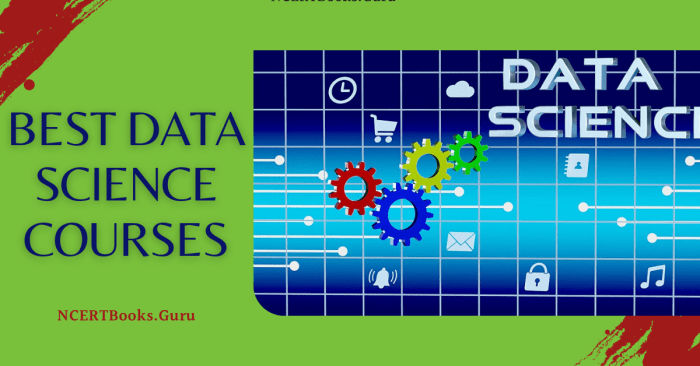
While formal data science courses provide a structured foundation, they are often just the beginning of your journey. Continuous learning is essential in this rapidly evolving field. This section explores a range of valuable resources that can complement your formal education and keep you ahead of the curve.
Books
Books offer in-depth knowledge and detailed explanations, making them valuable for both beginners and experienced data scientists. They provide a structured learning experience and can be referred to as a comprehensive reference guide.
- “Python for Data Analysis” by Wes McKinney: This book is a classic for learning data analysis with Python, covering essential libraries like Pandas, NumPy, and Matplotlib.
- “Data Science from Scratch” by Joel Grus: This book teaches the fundamentals of data science from scratch, covering topics like probability, statistics, and machine learning algorithms.
- “Introduction to Statistical Learning” by Gareth James, Daniela Witten, Trevor Hastie, and Robert Tibshirani: This book is a comprehensive introduction to statistical learning methods, covering both theory and practical applications.
- “Hands-On Machine Learning with Scikit-Learn, Keras & TensorFlow” by Aurélien Géron: This book provides a practical guide to machine learning with Python, covering popular libraries like Scikit-learn, Keras, and TensorFlow.
Articles and Blogs
Articles and blogs offer a quick and accessible way to stay updated on the latest trends, techniques, and tools in data science. They can also provide insights into specific topics or challenges faced by practitioners.
- Towards Data Science: This popular online platform features articles on various data science topics, including machine learning, deep learning, data visualization, and more.
- Analytics Vidhya: This blog provides articles, tutorials, and resources for data science professionals, covering topics like machine learning, data mining, and data visualization.
- Machine Learning Mastery: This blog offers practical guides and tutorials on machine learning, covering topics like deep learning, natural language processing, and computer vision.
Online Communities
Online communities provide a platform for data scientists to connect, share knowledge, and collaborate. They offer a valuable space to ask questions, get feedback, and learn from peers.
- Kaggle: This platform hosts data science competitions and provides access to a large community of data scientists. It’s a great place to learn from others, share your work, and build your portfolio.
- Stack Overflow: This question-and-answer website is a valuable resource for data scientists, providing answers to technical questions and offering solutions to coding challenges.
- Reddit’s r/datascience: This subreddit is a vibrant community for data science enthusiasts, where users share news, articles, resources, and discuss various data science topics.
Open-Source Libraries and Tools
Open-source libraries and tools are essential for data science practitioners, providing access to powerful functionalities and accelerating the development process. They foster collaboration and innovation within the data science community.
- Scikit-learn: This library provides a wide range of machine learning algorithms, including classification, regression, clustering, and dimensionality reduction.
- TensorFlow: This library is a powerful tool for deep learning, enabling the development of complex neural networks for tasks like image recognition and natural language processing.
- Pandas: This library provides high-performance data manipulation and analysis tools, making it a crucial component for data science workflows.
- NumPy: This library provides powerful tools for numerical computation, including arrays, matrices, and mathematical functions.


